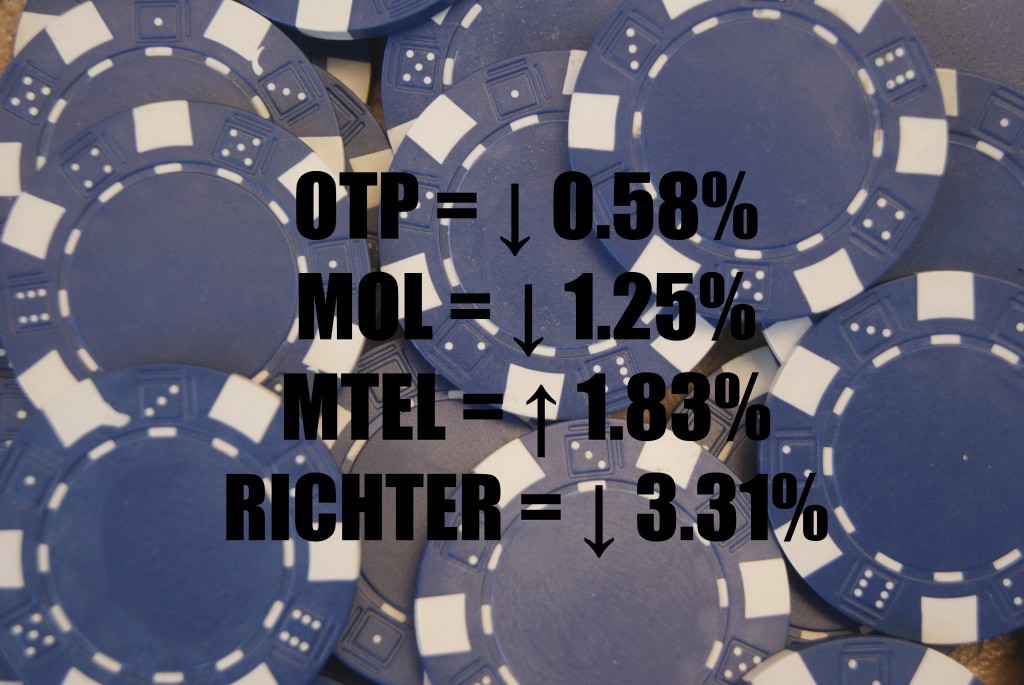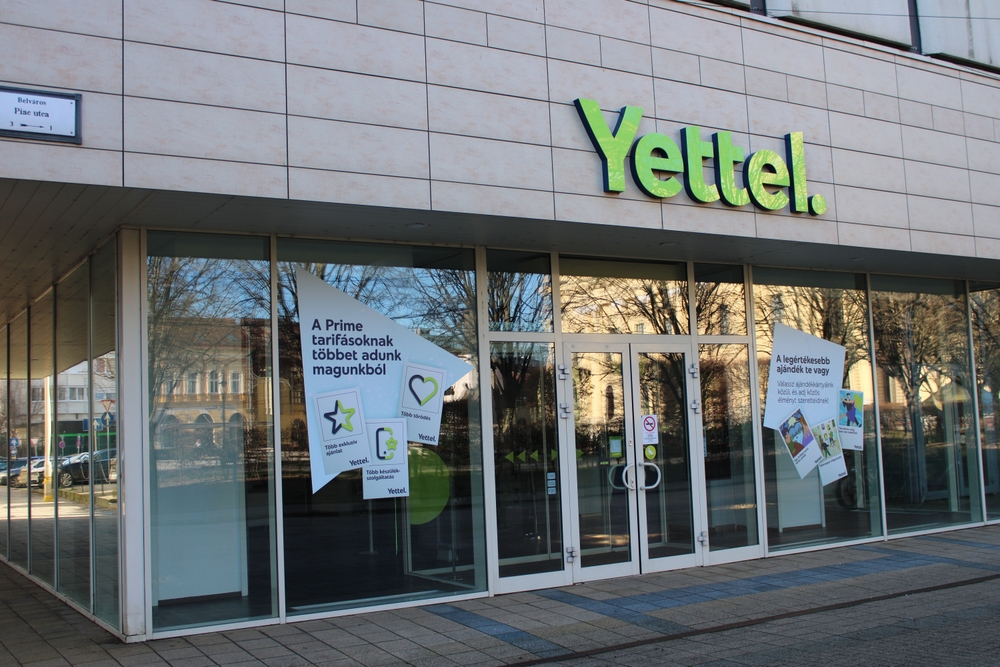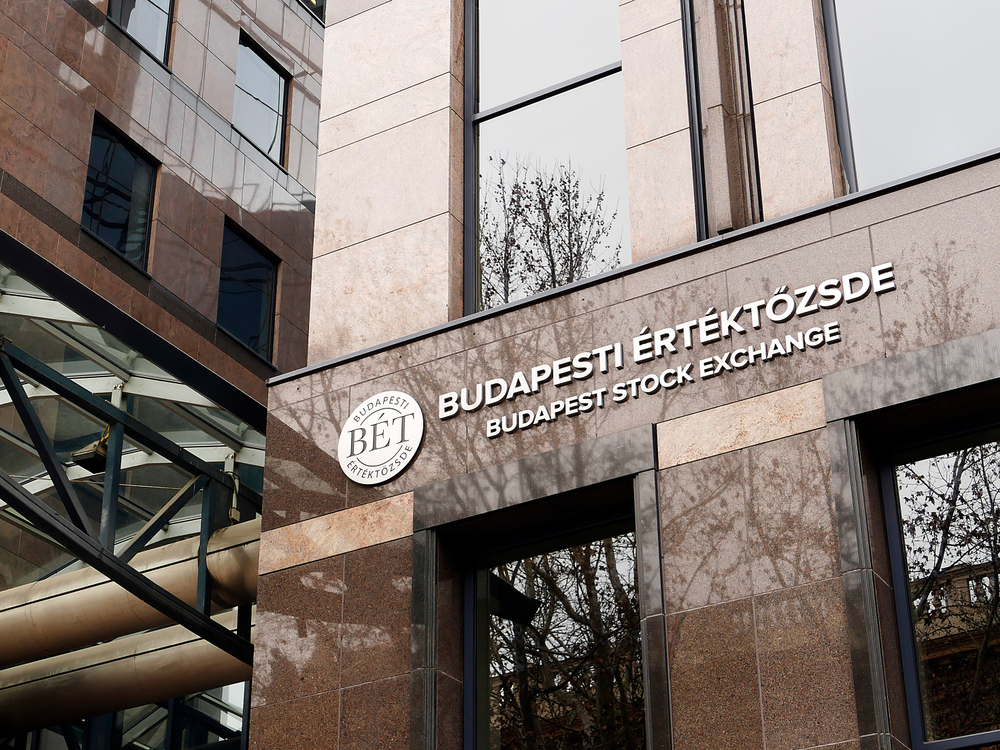BUX down for a third day

The Budapest Stock Exchange's main BUX index finished down 1.10% at 18,009.66 Monday after dropping 1.52% Friday. It is up 8.27% from year-end, after losing 10.40% last year. Last week the BUX added 1.10% after dropping 0.40% in the previous week.
Pressured by European risk aversion and worries for possible disorder in Russia after the week-end killing of a prominent Russian opposition figure the Budapest parquet fell for a third day, despite an encouraging February Hungarian PMI reading.
The Russian rouble's sharp fall against major currencies and also the Hungarian forint on Monday directly hit Hungarian blue-chips exposed to Russia's markets.
Magyar Telekom still outperformed, partly on its pledge last week to renew dividend payment next year after a two-year pause, partly on the Monday announcement of its parent, Deutsche Telekom, of a €6 bln network development plan.
Locally, declining inflation outlook is underpinned by loose labor market conditions and slowing wage growth, but expectations for a large central bank rate cut have, however, narrowed recently in view of the output gap closing in the economy and a pickup in risk aversion driven by external events, Citigroup said in a note on Monday.
Market-based lending stock in both the retail and corporate sector continued to shrink in the fourth quarter of last year, although the latter was mitigated by the central bank's Lending for Growth Scheme, a survey of the National Bank of Hungary (MNB) showed on Monday. "A steady decline in outstanding lending and tight credit conditions continued to characterise the corporate credit market outside the Scheme," the MNB said.
Net corporate borrowing continued to slow in January while corporate lending stock fell, the MNB said on Friday.
Fixed-asset investment growth slowed sharply to 1.9% on the year in Q4, from 16% in Q3, driven by declining public-sector investment, official statistics out last week also showed.
Hungary's strong February PMI, along with improved German figures indicates industrial output is likely to remain a strong supportive factor to GDP growth in the first quarter this year, Citigroup also said, but added it expected growth to slow from the second quarter onward.
OTP lost 0.58% to HUF 4,260 on turnover of HUF 2.72 bln from a HUF 7.78 bln session total, 8% short of the daily average this year.
MOL fell 1.25% to HUF 11,840 on turnover of HUF 1.83 bln.
Magyar Telekom rose 1.83% to HUF 390, a 22-month high, on turnover of HUF 1.54 bln.
Richter retreated 3.31% to HUF 3,800 on turnover of HUF 1.56 bln.
The bourse's mid-cap BUMIX went out 0.16% lower at 1,501.98.
Elsewhere in the region, the WIG 20 in Warsaw was down 0.49%, while Prague's PX improved 0.21%. Western Europe's major indices were all down ahead of their close Monday, FTSE-100 in London 0.16%, DAX30 in Frankfurt 0.03%, and CAC40 in Paris 0.78%.
SUPPORT THE BUDAPEST BUSINESS JOURNAL
Producing journalism that is worthy of the name is a costly business. For 27 years, the publishers, editors and reporters of the Budapest Business Journal have striven to bring you business news that works, information that you can trust, that is factual, accurate and presented without fear or favor.
Newspaper organizations across the globe have struggled to find a business model that allows them to continue to excel, without compromising their ability to perform. Most recently, some have experimented with the idea of involving their most important stakeholders, their readers.
We would like to offer that same opportunity to our readers. We would like to invite you to help us deliver the quality business journalism you require. Hit our Support the BBJ button and you can choose the how much and how often you send us your contributions.









